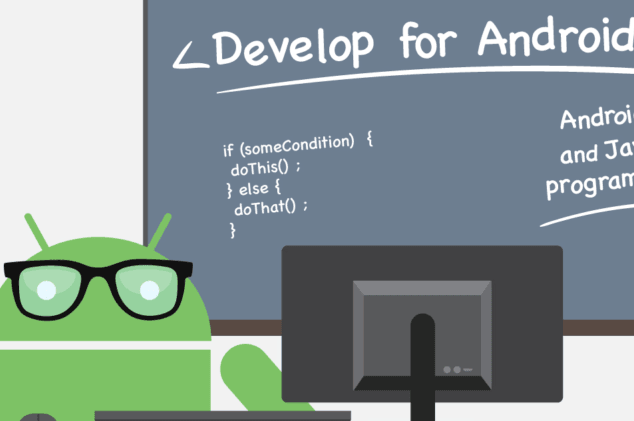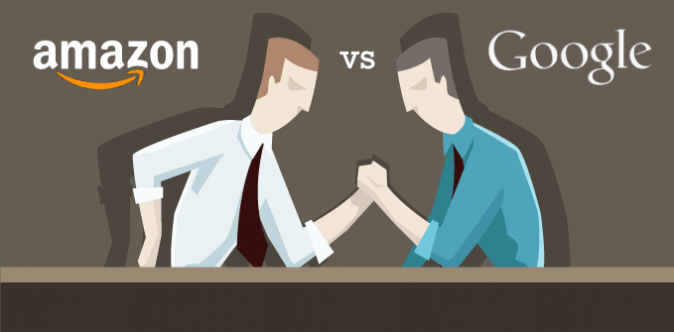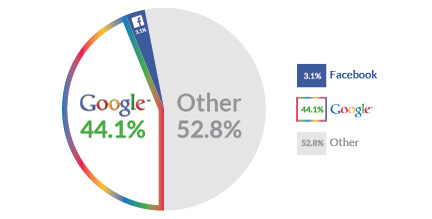About vectors of 'attacks' on Android from competitors and Google's potential to fight them …

Original material
I suspect that the Google department responsible for Android does not yet understand whether the transition to cross-platform will positively or negatively affect their product, but is leaning towards the second option, otherwise they would have switched to Flutter. I personally think it would benefit them, but what can I know? However, they are now actively working to maintain their position by improving the native development experience. And since the worst experience is in the development of large applications (Snapchat, Instagram), they mostly try to fix this very experience, which, in turn, is largely dependent on the build time.
To remedy the situation, Google is doing incredible work on an official build system for applications under Android, which is based on the already complex Gradle system. But Google also piles on top of a bunch of confusing and specific to Android components. The system becomes more and more complex every month and comes to the point when even the engineers themselves do not understand the essence of its components. But as the complexity increases, developers find the added functionality important for large stores with popular apps.
Ironically, most of these stores are aggressively ditching Google's decisions in favor of Buck, the Android build system from Facebook. In this case, Google is pursuing the wrong strategy. So even though Google understands that there is a problem, they are working with a vengeance on unpopular solutions: a native set with an extremely complex Gradle build system. The company is losing developers. Third-party solutions are gaining market share.
Flank attack
To top it all off, the development kit is not the only attack vector against Android. There are other ways to 'steal' Android from Google. One approach is to build a successful application catalog. One of the main restrictions that Google places on Android is the Play Store catalog, which has caused and continues to cause significant controversy at the company and government levels. Yes, Android is positioned as an open system, but the Play Store is completely controlled by Google. Cyanogen has made a good attempt at a 'change of power' with the support of Microsoft and Twitter. Although the project failed due to internal political confrontation, this was the first serious attempt to encroach on the Play Store monopoly.

But guess who else is competing with their app catalog? That's right: Jeff Bezos. You can't become the world's first trillionaire without stealing Android from Google. At least it seems to me that it will help. The app catalog from Amazon already looks pretty impressive, and in almost every confrontation between Google and Amazon the latter have always pulled ahead.
And as if Google already had few problems, there is a third vector of attack on Android, this time it hits the worst one – advertising. Thanks to the many years of work of many developers, Android – the client Facebook has become so large that it 'spawned' its own platform, and now you can promote your ads directly through the application Facebook . For example, they might buy an ad for the New York Times and all the money goes straight from NYT to Facebook, Google won't get a dime. You can imagine how Google feels in this situation. WeChat does the same in China. The app has grown into a thriving platform for creating and promoting other apps and advertisements. It's like there is a whole market in the application itself. Mobile apps Facebook and WeChat have become independent channels for advertising.
You need to be clear about the following: Google created the OS Android just because it is an advertising channel. The company is the largest ad provider in the world, and therefore it always faces the threat of attack by other companies that want to lure potential consumers into their channel, and not into that of Google. The final analysis reveals that this is precisely the essence of the attack on net neutrality. Telecom operators and ISPs want to single-handedly show you ads, or at least bite off Google and Facebook some of the revenue.

Every time Facebook, Google, Amazon or Microsoft mysteriously start a new unknown business, you can bet that this is a game with channels. Google Chrome is a game with channels that control network access. Microsoft Xbox is a channel game against PlayStation that threatened to replace the PC as a home network access channel. YouTube, Instagram, WhatsApp, vs. HBO / Amazon / Netflix, Amazon Echo, Google Maps is the same 'game'. The tidbit of this war is your home. The takeaway is that companies want to showcase your favorite content through their channels in order to profit from ads or subscriptions.
It is likely that Android is the most important revenue channel for Google, if not for today, then for the next ten years. The company cannot afford to lose control of the OS. But we've already seen three coordinated types of attacks across different dimensions: the developer ecosystem (React Native and others), the app catalog (Amazon and the acclaimed follower of Cyanogen), and the lightweight in-app ad markets (so far Facebook and WeChat). Google's response to these threats … Let's just say the company is still at the top. For now. All of this may seem like a bunch of useless hyped rumors, but it actually affects third-party developers who have to make important choices in favor of certain technologies to develop mobile applications that have become a window to the world (remember channels?) For users and owners.
If you think there is a fraction of the likelihood that Google will lose control of Android, then the best solution is cross-platform infrastructure, because it is a kind of insurance due to improved portability to another platform. And if you have already entered into an uncompromising race with competitors and you need to launch as early as possible, then in any case you need to switch to something other than Android Native. Android is still trying to catch up with the Gradle train, which by definition cannot happen quickly. The reason is largely due to design legacy issues Android, which are not easy to hush up. Of the cross-platform alternatives, React Native looks like a winner. This tool is attractive to web developers – perhaps the largest developer audience around the world. It's not easy to compete with this.

It will take a long time before developers abandon native applications for Android and iOS, porting takes time. This means that if you are a developer for any mobile platform, then this is great, employers are in dire need of you. Around the world, experts in React Native, Kotlin for Android and Swift for iOS are highly regarded. If your boss doesn't appreciate you, look around. Much has changed over the past three years. The world needs developers for mobile platforms, but it is difficult to find them, because programming for Android is extremely unpleasant, everyone except Google knows about it, so the ecosystem is flourishing, and competitors are trying to pave their own 'single path' for programming for mobile devices. And this fragmentation of the market makes finding developers even more difficult.
Now is a good time to compete to seize control of Android, if you're interested. Many companies are interested in this, even the teams at Google itself are working on it. But there are many great sharks circling the ship Android. Careful Google.
Written by Steve Yegg (no offense, Steve)
Google takes a wait-and-see attitude while trying to reorganize its own development system and rethink its approach to it. But will she miss her chance and miss the more important train? Of course, Mountain View is accustomed to a constant 'siege' and will not give up so easily, it is likely that a plan for a retaliatory blitzkrieg has already matured in the bowels of Google.
I confess that before I read the material, I had not heard of its author, so I distorted the name, thanks for correcting it. Nevertheless, the original article was extremely interesting even to me, a person without extensive knowledge in the field of development. I occasionally used the application catalog Amazon on my previous device, there were interesting offers and promotions, quite good selections. But the question is, can it become as popular as the Play Store anywhere outside of the US? Will third-party developers be able to 'put the squeeze' on their products and bring them on a par with native development solutions? Or is it the fate of Cyanogen?
